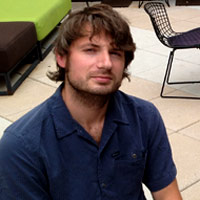Zach Adam Selected for Origins Postdoctoral Lectureship
Dr. Zach Adam was selected as the 2017 Arizona State University Origins Project Postdoctoral Lectureship Recipient. This award will support Zach’s research and allow him to travel to ASU to deliver both academic and public lectures. Congratulations and good luck to Zach! [click here to read the full press release from ASU]
Read more
